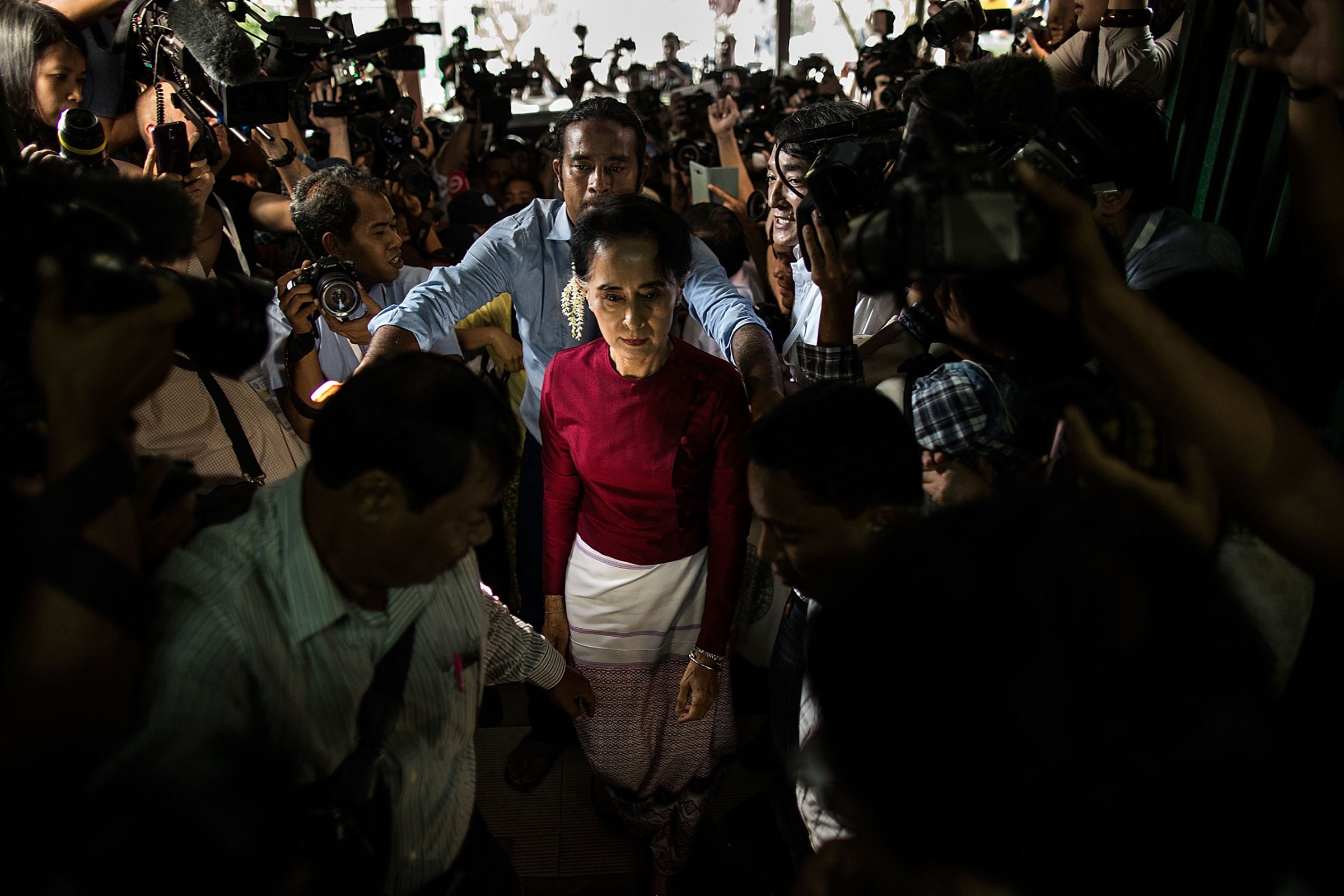
There’s a man named John, aged somewhere in his 50s, who sometimes loiters near the entrance to the headquarters of the National League for Democracy (NLD), Myanmar’s ruling party as of one year ago. If you say hello to him, preferably in his native Burmese, there’s a very good chance that he will tell you all about the day the White Bridge turned red.
John says that on March 13, 1988, he was shot in the back — he readily displays a scar as evidence — and his college girlfriend was killed when police violently cracked down on a student protest that had morphed into an openly antigovernment march. The White Bridge atrocity was one of the early events that led to Myanmar’s 1988 uprising, which by August of that year had grown into a nationwide effort to overthrow the country’s brutal military regime. Authorities responded, predictably, with more brutality.
One year ago, on March 30, the NLD was sworn in as Myanmar’s ruling party with a resounding majority after it swept the country’s first free election in decades on Nov. 8, 2015. The party, led by Nobel Peace Prize laureate Aung San Suu Kyi, now 71, was founded in the wake of the 88 popular uprising, and after a decades-long struggle she marshaled its members to a dramatic comeback and she became State Counselor, the country’s highest civilian role. This was the stuff of screenplays: in a rare vindication of history, a former political prisoner, the quiet and dignified daughter of the country’s late independence hero, stepped out of the sidelines to trounce the corrupt, inept and violent regime that had kept her in confinement for the better half of two decades.
“Expectations were extremely high for change, even as observers understood the constraints the NLD faced,” Derek Mitchell, the former U.S. ambassador to Myanmar, tells TIME. “That said, people do question whether the NLD, and Aung San Suu Kyi herself, have made the most of their first year in office.”
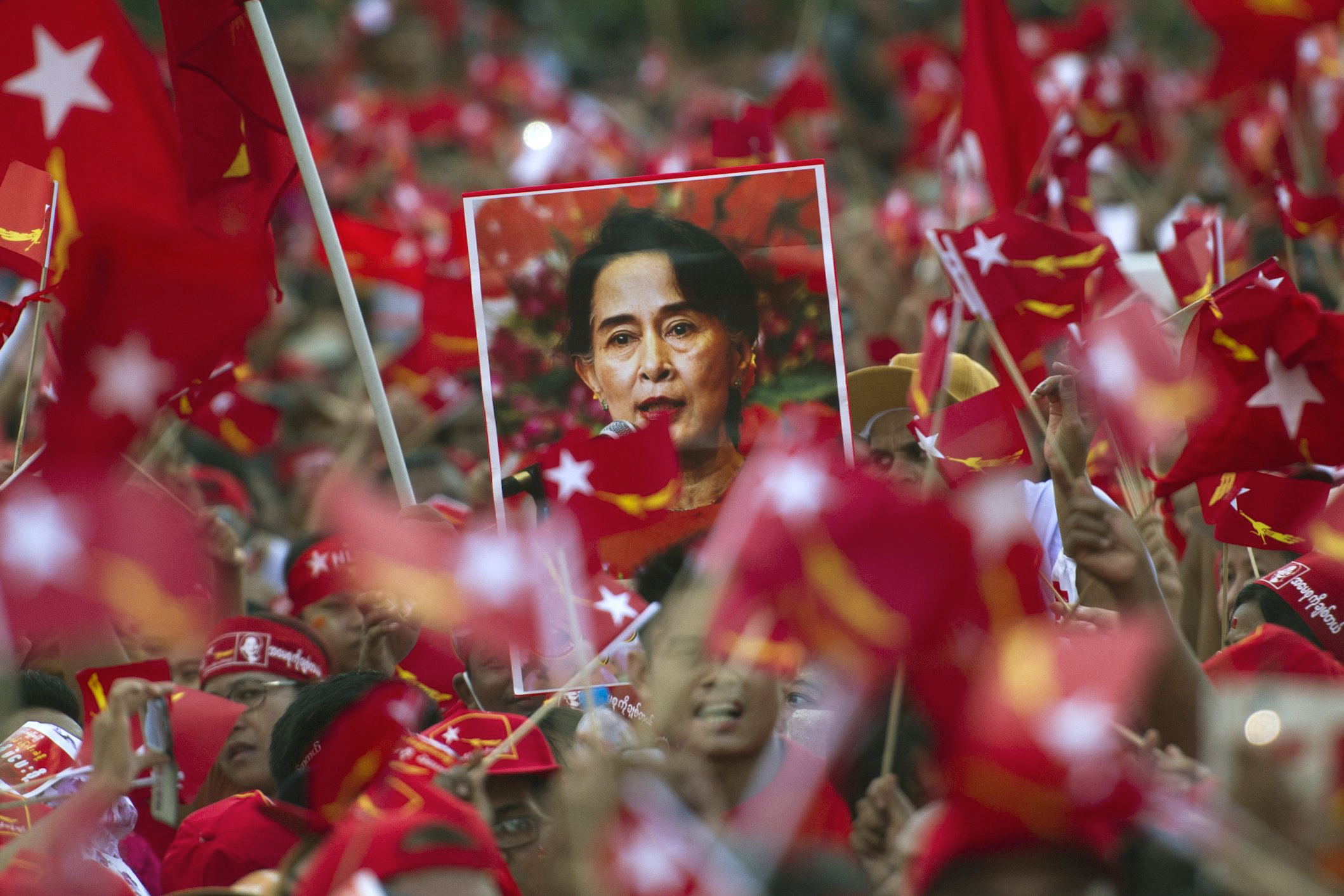
It was clear from the start that Suu Kyi’s task would be daunting for even the most adroit politician. The country’s constitution, drafted by the military in 2008, was designed to prevent her from becoming President with a clause disqualifying anyone with a foreign spouse or children. (Her late husband and two sons are British citizens.) It also enshrines the political power of the armed forces; the charter reserves a quarter of parliamentary seats for a military bloc, and requires more than 75% of the legislature to enact amendments, giving the commander in chief veto power over any attempts to change it. The constitution also places three important ministries — Home Affairs, Border Affairs and Defense — under the authority of the commander. The Home Affairs Ministry controls all levels of general administration, further diluting the ruling party’s ability to implement policies effectively.
Not only is Suu Kyi, a democratic icon, hamstrung by a fundamentally undemocratic system that looks unlikely to change, but it also appears her administration is unprepared to meet some of the challenges that have been flung into full view by developing emergencies. “We all want this country to succeed,” Mark Cutts, Myanmar head of office for the U.N. Office for the Coordination of Humanitarian Affairs, tells TIME. “There’s been so much euphoria about the opening up of this country, democratization, modernization, and political and economic reforms. In all of this, there’s been a tendency to underestimate the challenges.”
Myanmar is among the poorest countries in Asia, and it faces several crises as it emerges from half a century of military rule. Its borderlands are the battleground for one of the world’s longest and most complex civil wars, being fought between the central government and more than 20 nonstate armed groups, many representing ethnic minorities vying for autonomy. On the country’s western coast, deadly unrest between majority Buddhists and the Muslim Rohingya minority has traumatized the state of Rakhine, which borders Bangladesh, leaving communities in a state of religious segregation that has been likened to apartheid. Recent military operations in Rakhine led to allegations that the Myanmar military has committed atrocities against the state’s estimated 1.1 million Rohingya Muslims, the world’s largest group of stateless people.
Read more: Battling for Blood Jade: An Exclusive Report
In the long term, Myanmar’s new civilian government is tasked with rebuilding institutions gutted by decades of corrupt and incompetent bureaucracy. The country’s health, education, financial and justice systems have all fallen into disrepair, and the civil service suffers a shortage of experienced and qualified personnel to staff them. Myanmar’s economy, considered Asia’s final frontier with a population of about 51 million people, is underperforming, as reforms have been slow to materialize and confusing to investors. Nearly two decades of crippling U.S. sanctions were lifted in September of last year, when Suu Kyi met with then President Barack Obama in Washington, though businesses still approach the former pariah nation with caution. The new NLD administration has struggled to draft clear economic policies that sustainably promote sectors such as agriculture — some 70% of the population are farmers — and investor interest is waning amid the impasse.
Sean Turnell, associate professor of economics at Macquarie University in Sydney and an adviser to Suu Kyi, defends the new government’s progress, arguing that economists expected a downturn at this point in the reform process, and now begins the more difficult task of courting responsible investment. “Lots of [foreign direct investment] came in at first,” Turnell says, “but if you disaggregate it you’ll see it’s the ‘easy’ stuff — it’s mostly extractive sector, mining, energy, natural resources … Now comes the harder stuff: how to attract investment in manufacturing, in rural supply chains, in retail, in tourism beyond the obvious gaps. This is harder.”
But first, there must be peace.
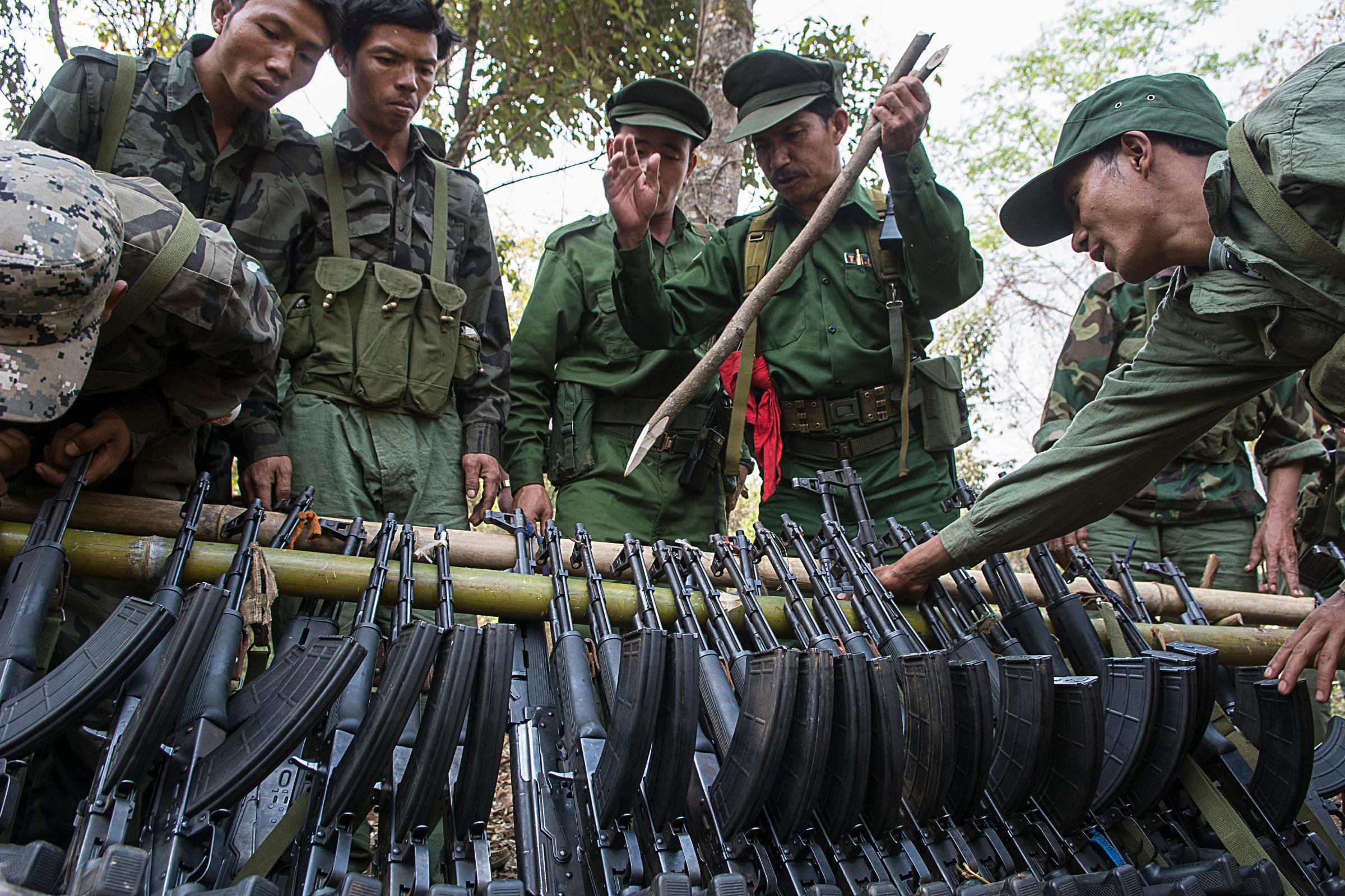
In the remote Shan hillsides, blanketed by tea plantations and, in some areas, sprawling poppy fields, rebel soldiers and militiamen find refuge in the forest. Ethnic conflict has wracked the country’s borderlands for more than half a century, as minorities fought for political autonomy over their resource-rich and strategically important lands. The Myanmar army, known locally as the Tatmadaw, has long been accused of human-rights abuses against the country’s many minorities — the government recognizes 135 distinct ethnic groups — who harbor deep resentment toward the ethnic Burman majority that may take generations to appease. Suu Kyi has pledged to heal the divide. “To achieve peace for all ethnic groups, everyone must work to understand and respect one another,” she said during a recent trip to displacement camps in Kachin state in Myanmar’s far north, according to Radio Free Asia. “The important thing is not to consider others as enemies simply because they don’t share the same ideas with you.”
But ethnic armed groups are not convinced she is an honest broker. “Ha! They just support the fighting!” says Dau Mu Kaung, chief of the Ta’ang National Liberation Army’s fifth brigade, referring to the NLD. Speaking to TIME at a safe house in the northern Shan township of Kutkai, the rebel soldier says he doesn’t see an end to the conflict soon. Dau Mu Kaung doesn’t trust the Tatmadaw, and, seeing little discernible difference between the army’s policies and those of Suu Kyi, he doesn’t trust her either. He says the group will not disarm until it has been granted an autonomous state. The Ta’ang resistance, like several other ethnic rebel groups in Myanmar, reached a cease-fire with the military government in the 1990s, but Dau Mu Kaung says it left his people unarmed and at the mercy of the Myanmar army. “We can govern ourselves, we don’t need the Burmese government,” he tells TIME. “Our aim is revolution.”
Read more: ‘This Will Be the Worst War’: Thousands Flee Conflict in Eastern Myanmar
The TNLA is part of a new coalition called the Brotherhood of the Northern Alliance, which threw a spanner in the works of the country’s fragile peace process last November when it launched coordinated attacks on several Tatmadaw positions near the Chinese border. Suu Kyi has infuriated the alliance by siding with the army’s position that the group’s members are essentially troublemakers who threaten national security — a pretext used to legitimize security sweeps, renewed offensives and obstruction to humanitarian aid.
Ei Sein, a 44-year-old ethnic Ta’ang woman, has spent the past year in the Pan Tha Pyay displacement camp, a grouping of bamboo structures with no electricity, no farmlands, no school and no cell phone reception. About a two-hour drive from Lashio, Shan state’s largest city, it is not difficult to come upon entire makeshift compounds full of people who say they have fled their homes after gun-toting soldiers entered their villages seeking goods or hunting for suspected rebel collaborators. In northern Shan state, civilians are living in uncertainty. They say they’re sure the war is about to get worse. Ei Sein had never even heard of the country’s peace process. “No one tells us the news, what are the peace talks?” she asks. “Nobody told us.”
The Plight of the Rohingya by James Nachtwey
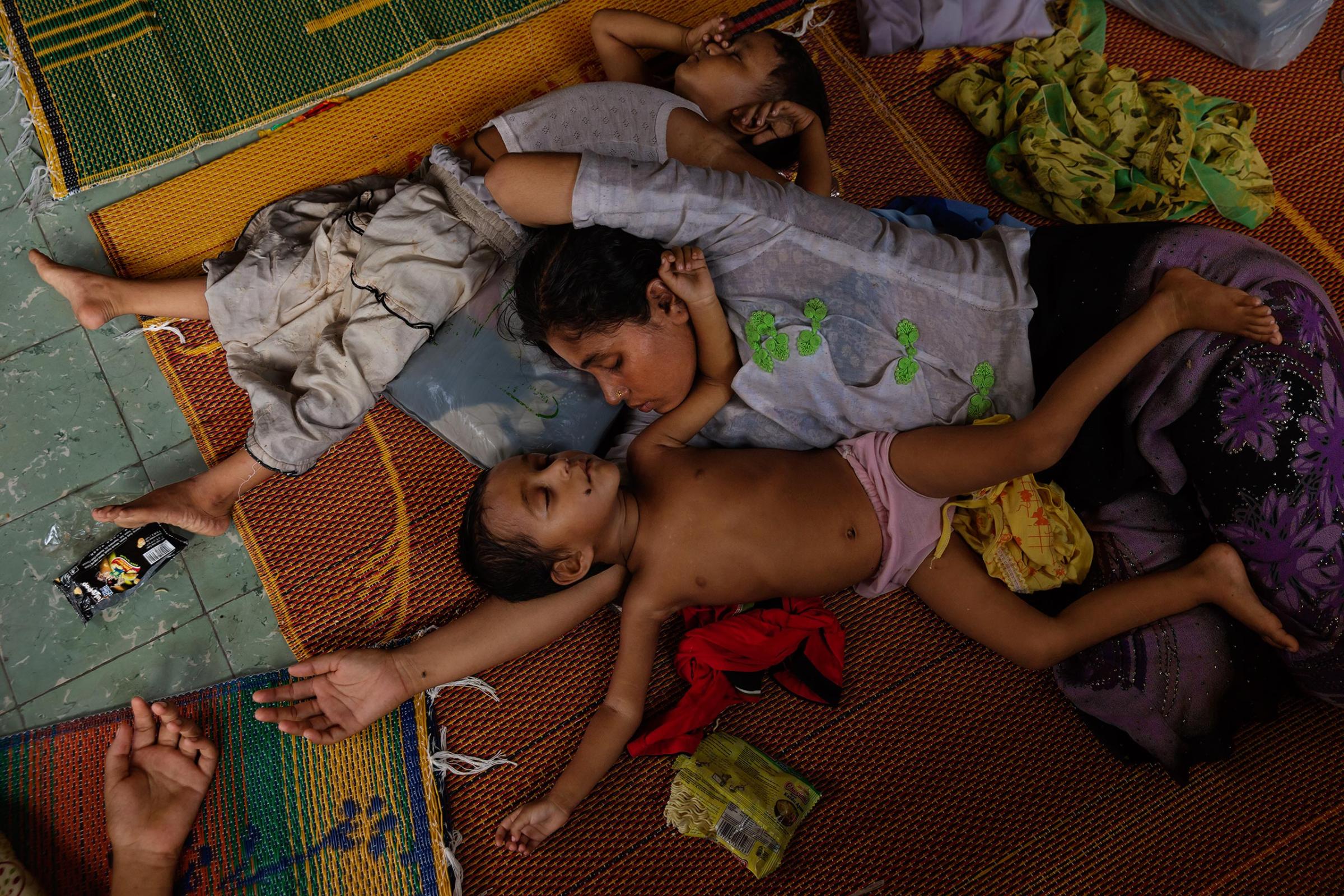
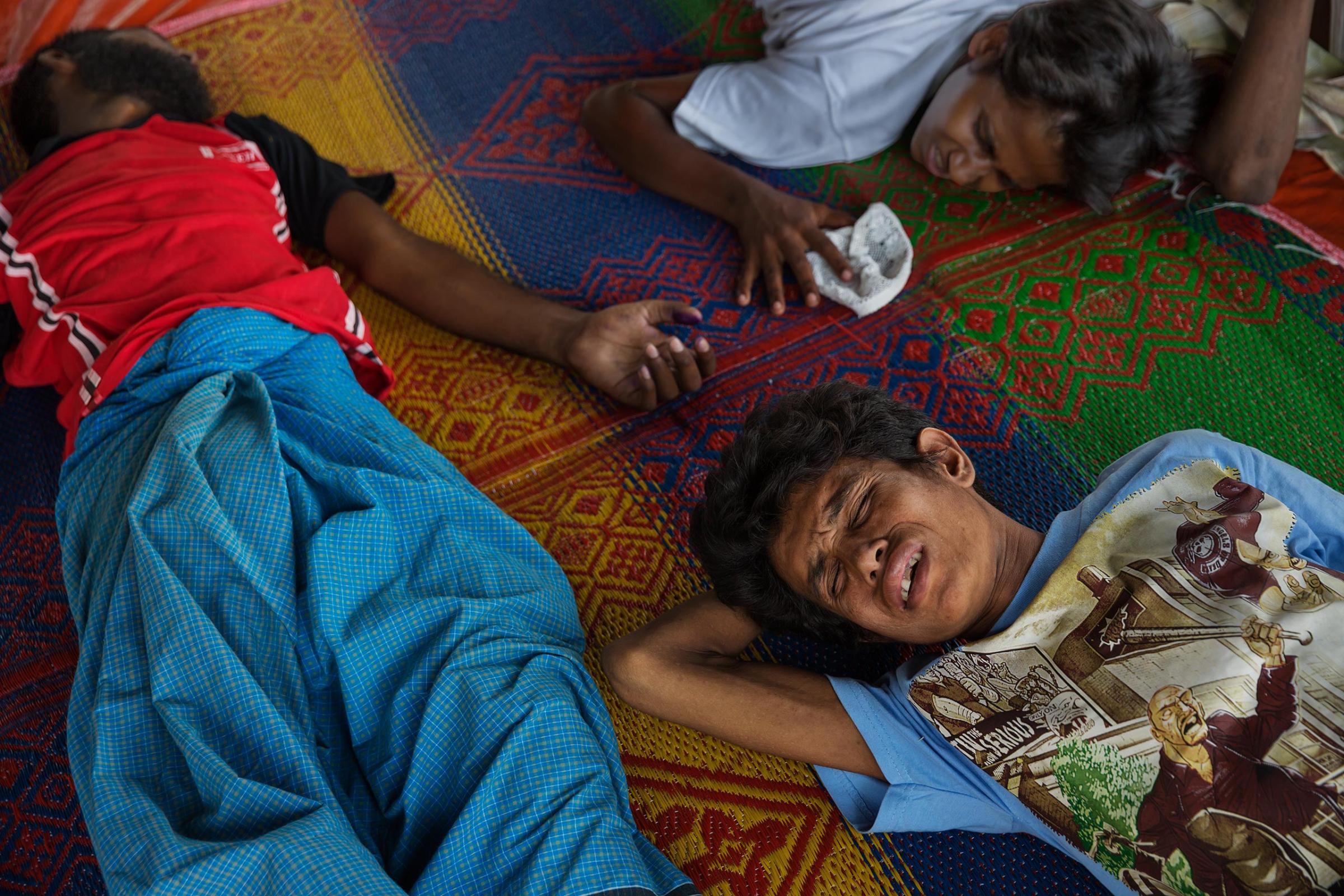
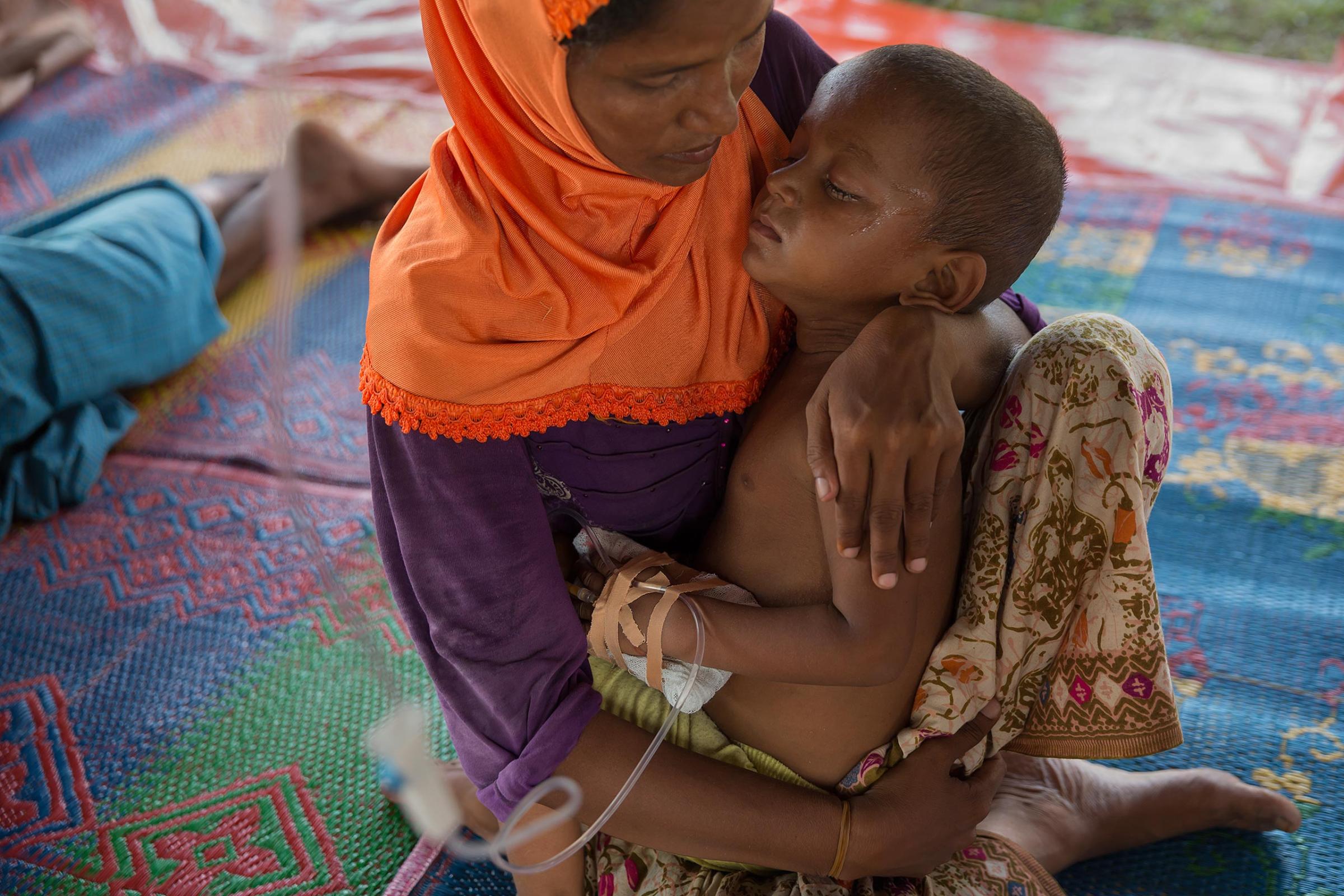
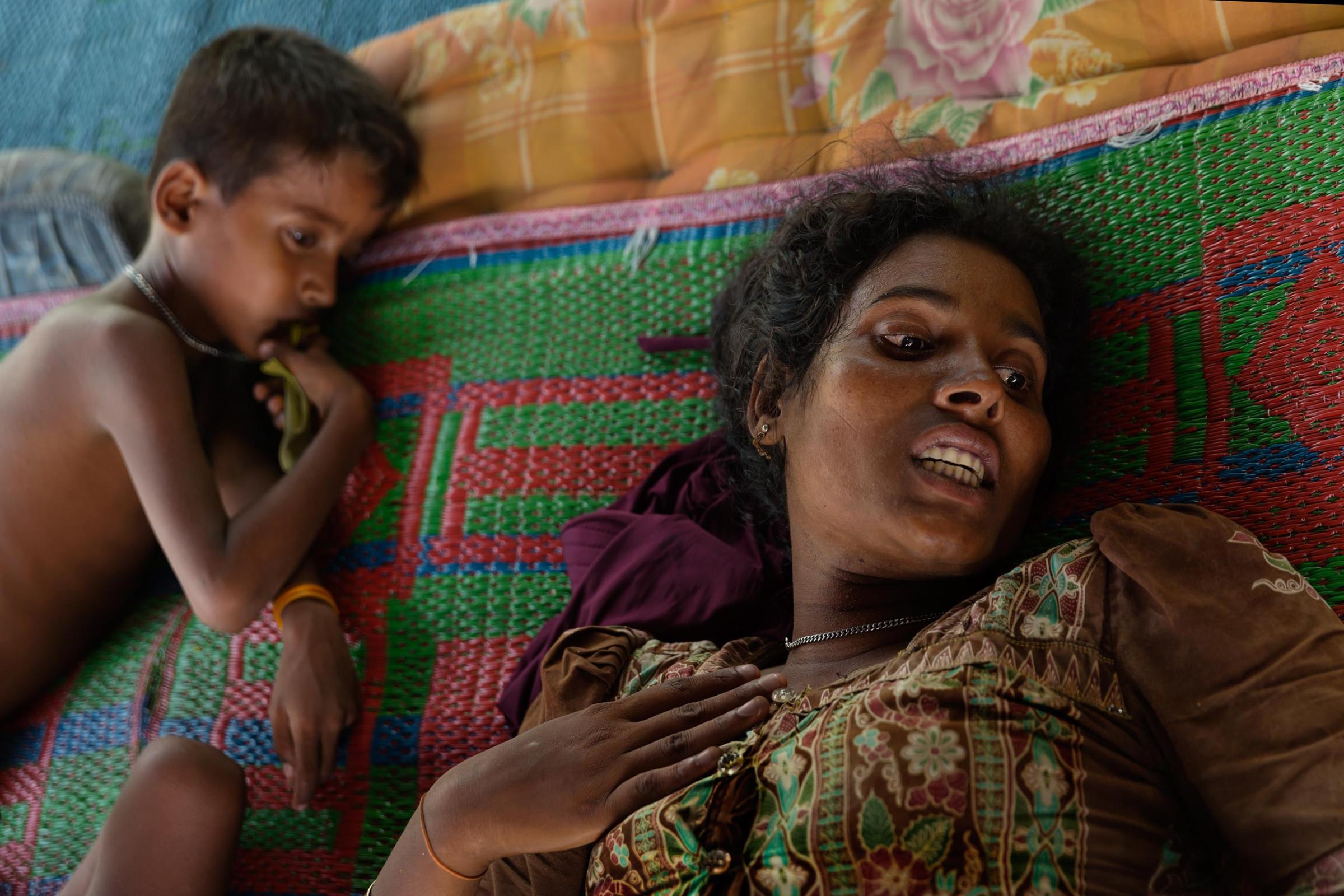
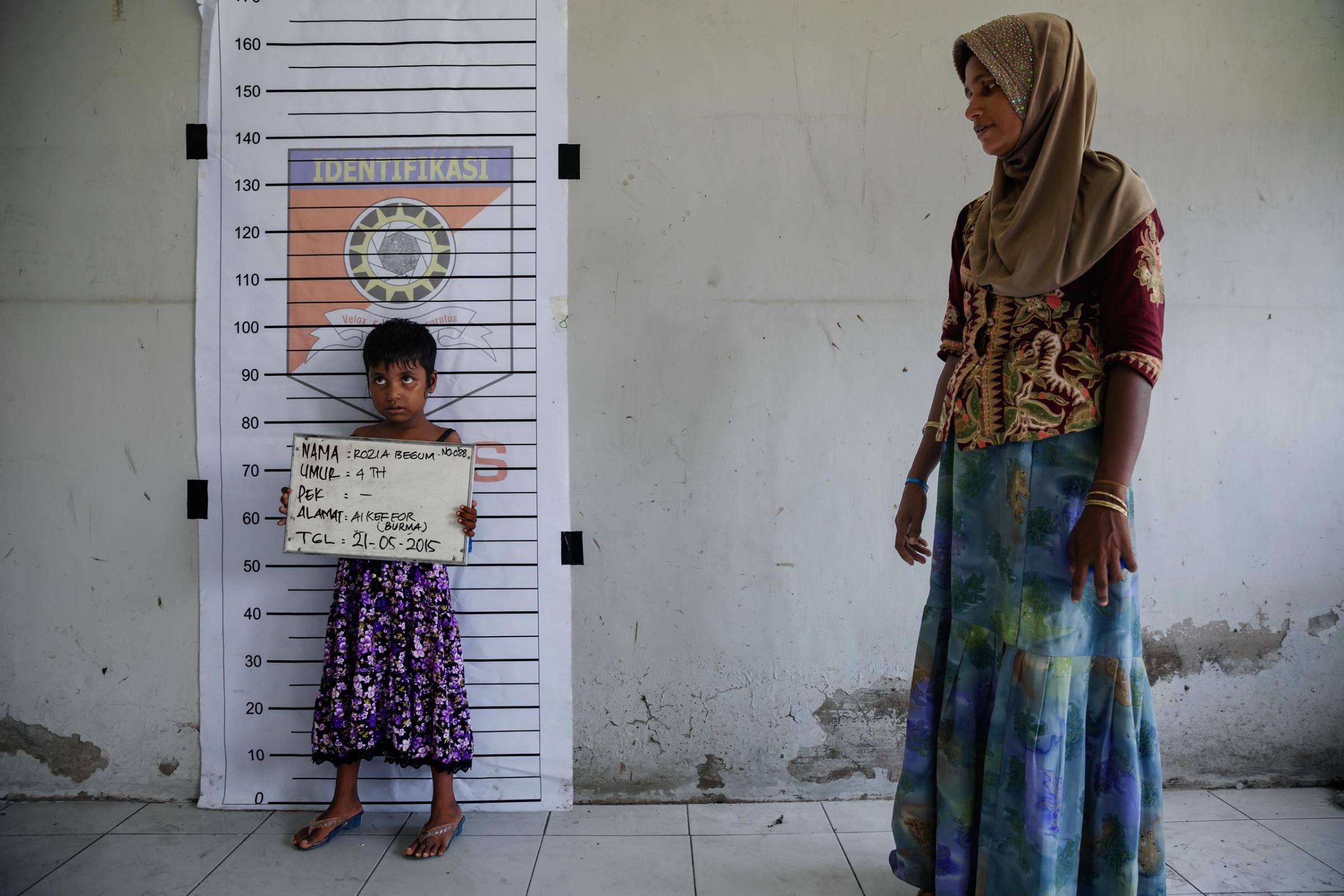
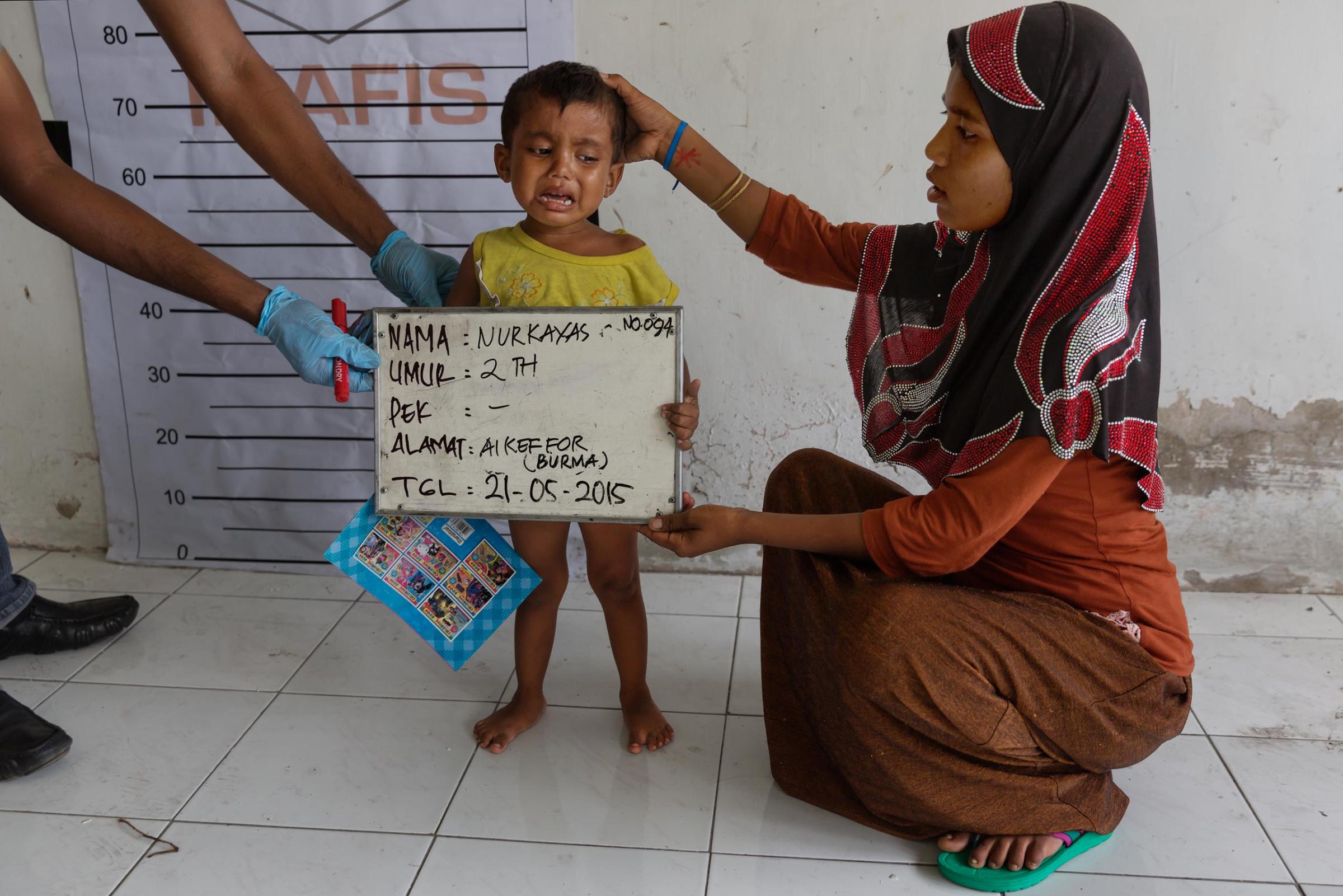
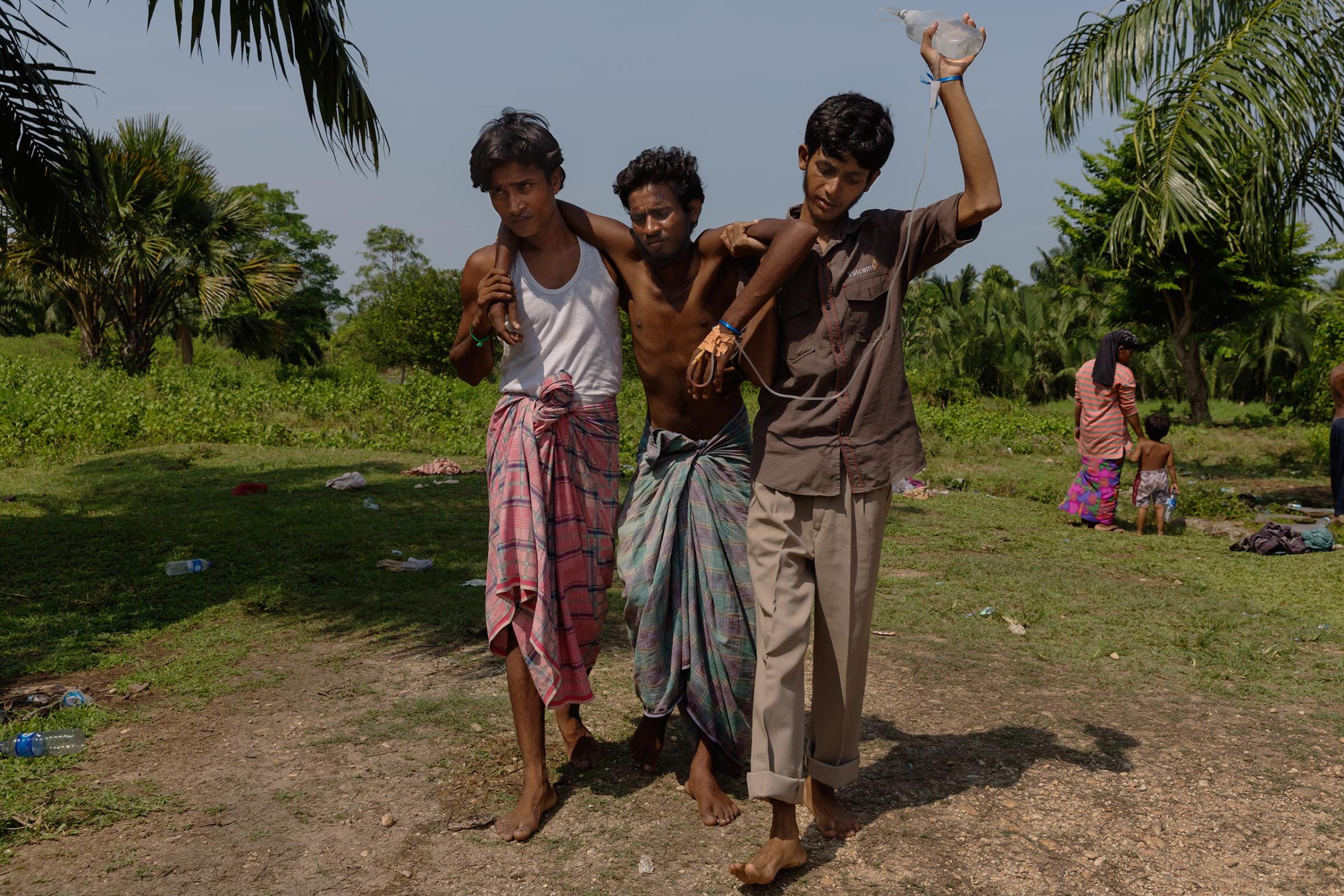
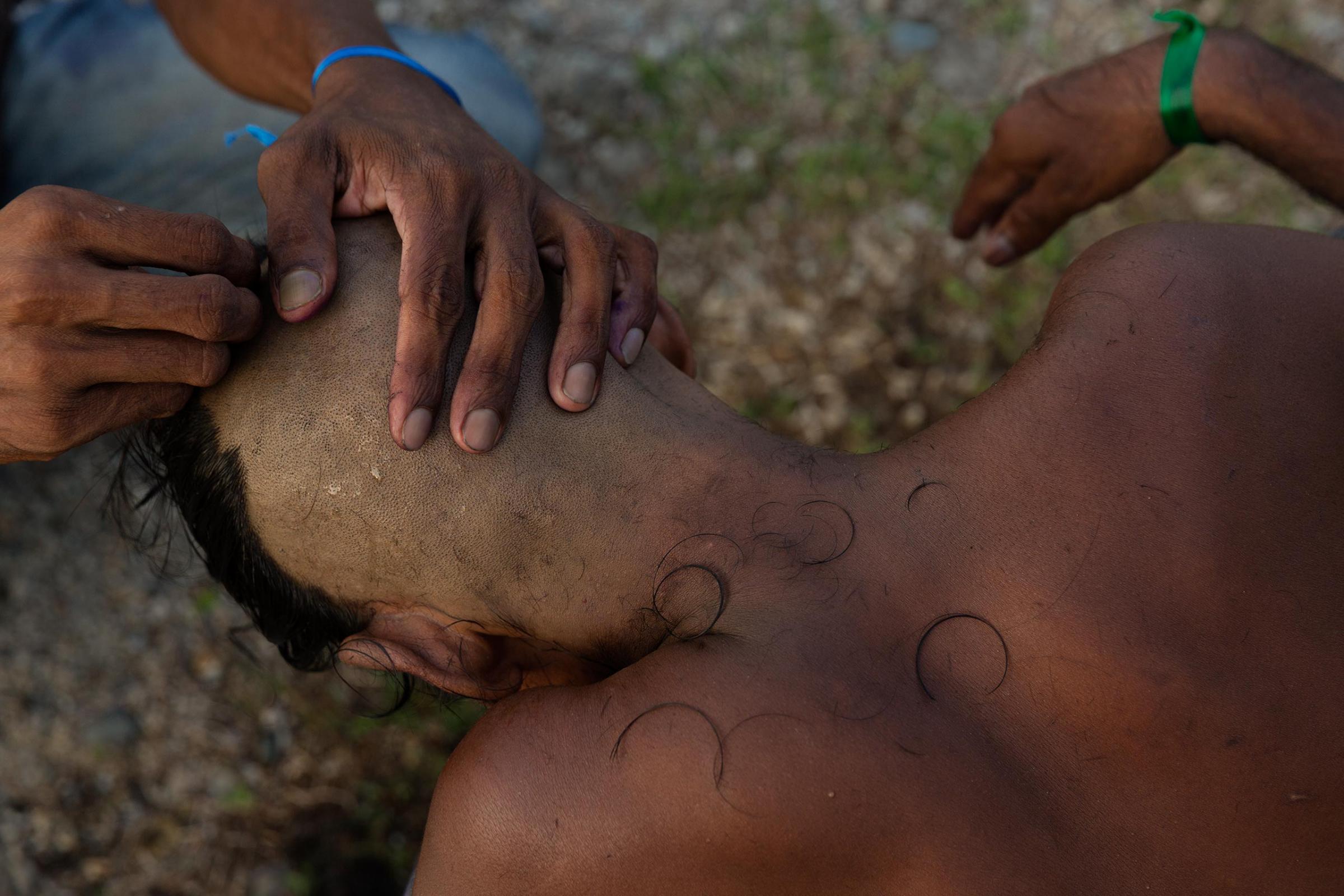
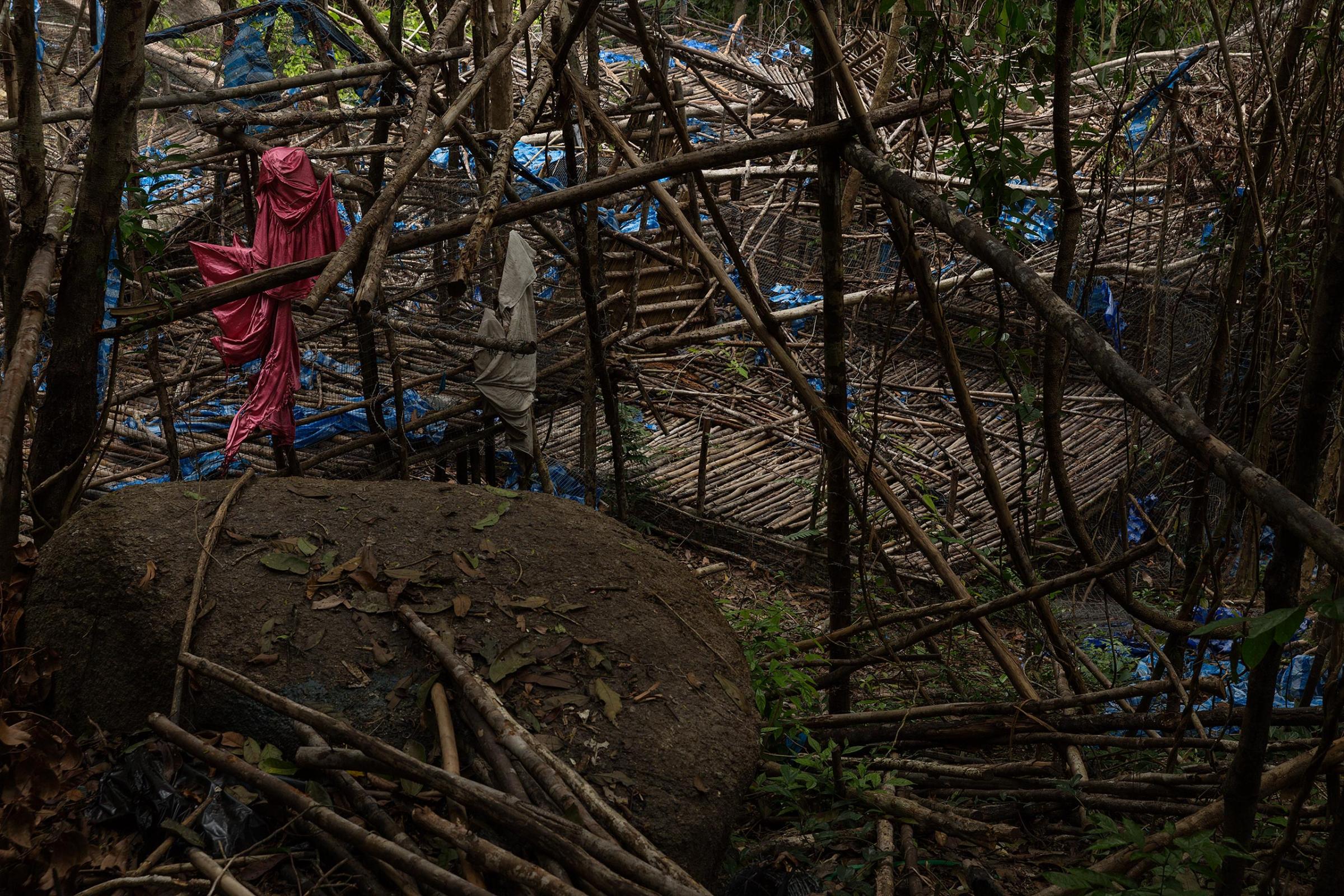
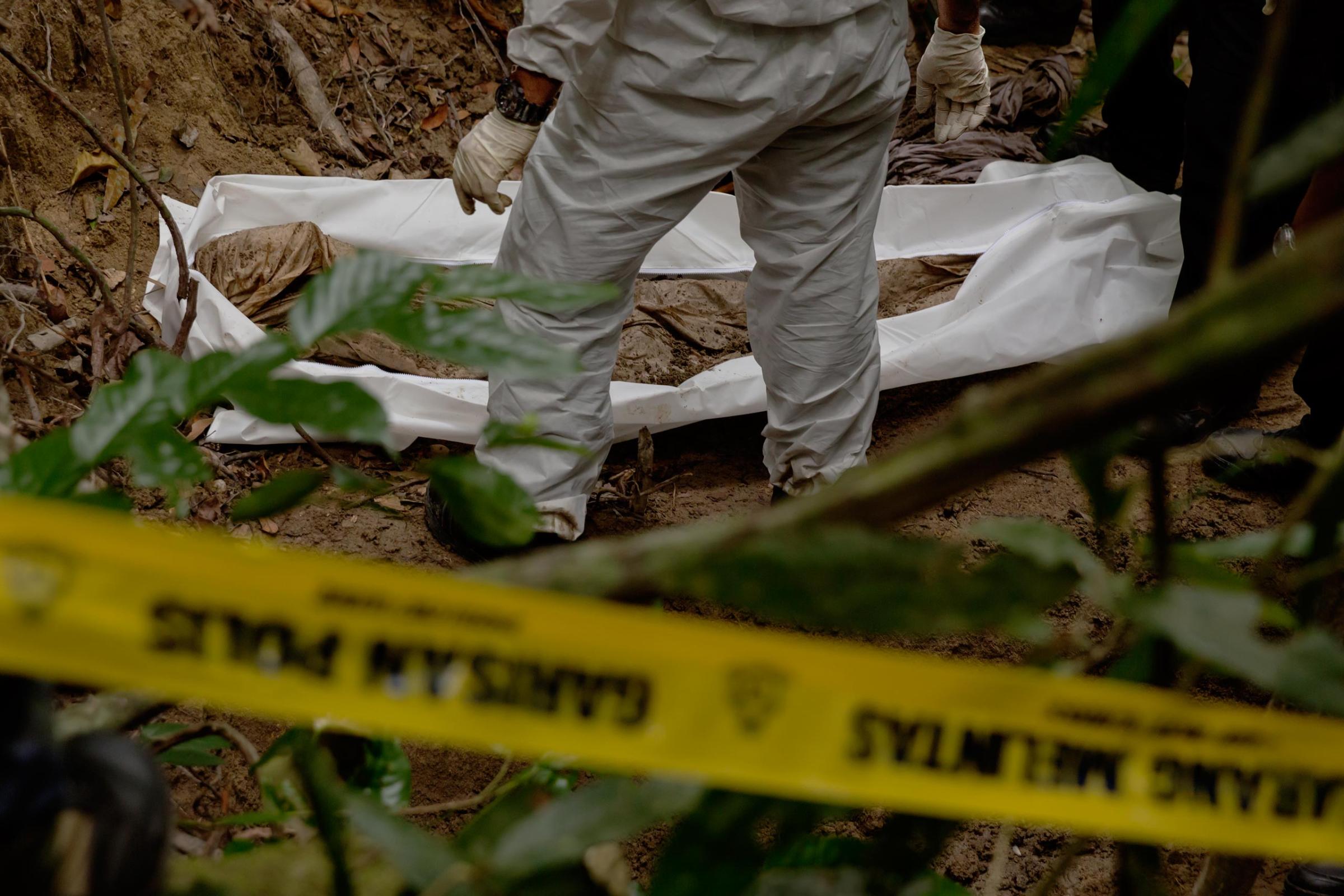
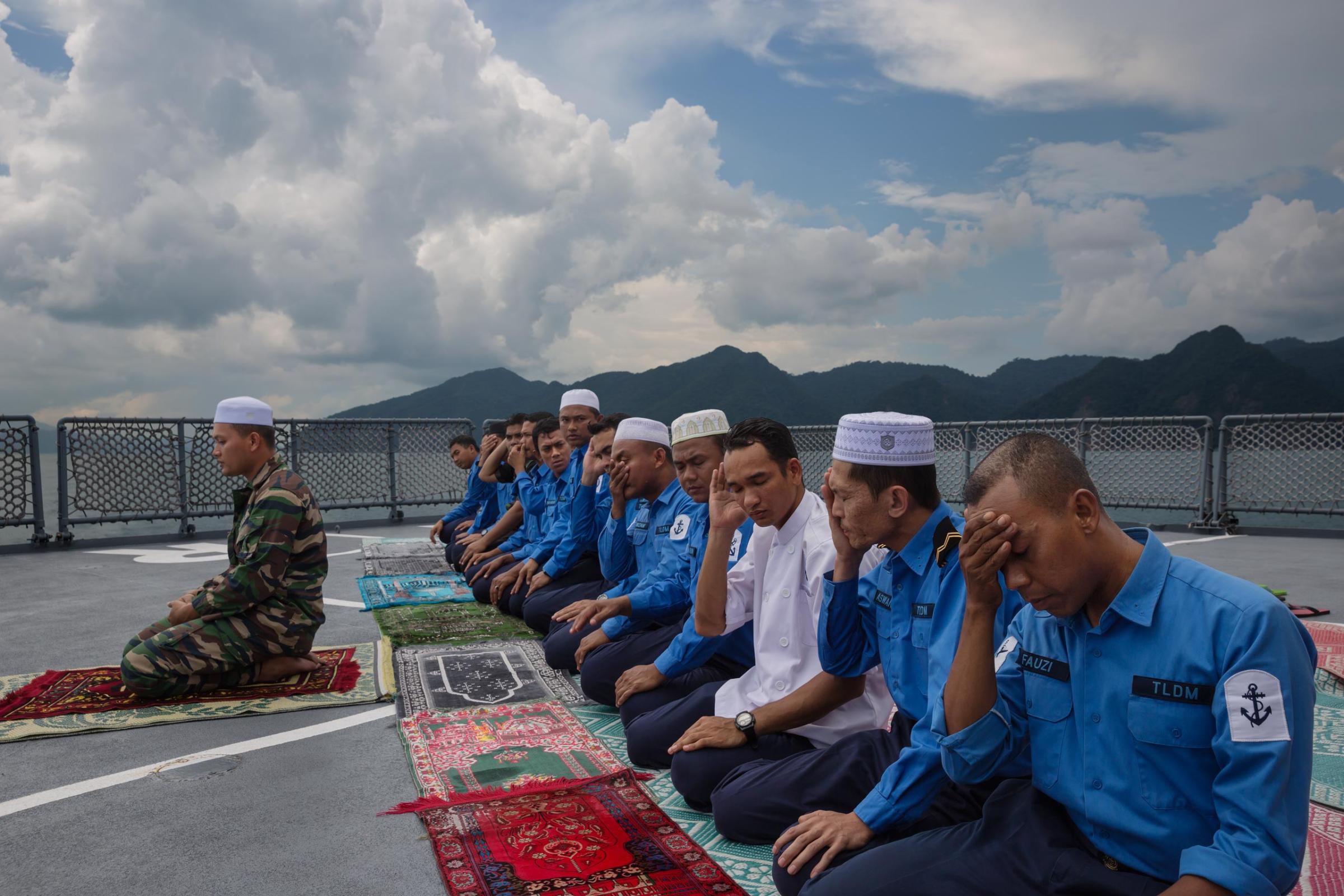
“The most disappointing feature of the NLD government is that it time and again appeared to align itself with military interests,” David Mathieson, an independent analyst based in Myanmar, tells TIME, “either through supportive statements or abject silence, without attempting to make clear any difference between their objectives and interests.” The same has been said of Suu Kyi’s response to the ongoing crisis in Rakhine, where the army has been accused of rape, torture and extrajudicial killing of Rohingya Muslims. Suu Kyi’s office responded to allegations of sexual violence by posting a red graphic emblazoned with the words “Fake Rape” on its official Facebook page.
The new government inherited an intractable quagmire in Rakhine, where more than 120,000 Rohingya have been confined to squalid displacement camps since deadly unrest shook the coastal state in 2012. Riots broke out between the state’s Buddhist majority and minority Muslims, overwhelmingly resulting in the displacement of Rohingya and other Muslim communities. The Rohingya have been persecuted for decades; most have been stripped of their legal status, disenfranchised and denied basic freedoms. Many in Myanmar view the group as illegal immigrants from neighboring Bangladesh, and refer to them as Bengalis or the derogatory term Kalar instead of their preferred nomenclature. “All we are asking is that people should be aware of the difficulties that we are facing and to give us enough space to sort out our problems,” Suu Kyi said at a rare press conference in May last year, after news emerged that she had secretly advised foreign dignitaries not to use the group’s name.
In the Rakhine capital, Sittwe, communities remain completely segregated nearly five years after the conflict; the Muslim quarter, Aung Mingalar, is surrounded by police armed with assault rifles, and its inhabitants are not allowed to leave without permission, even to seek medical care at a hospital just down the road. Shopkeepers in the fetid Muslim ghetto must travel to the nearby displacement camp to restock, where they purchase goods only made available through informal economies or nongovernmental assistance programs. “We have become beggars,” a Rohingya man confined to the dismal quarters, who wished to remain anonymous, tells TIME, as we stroll past dilapidated houses trailed by a plainclothes policeman. “We can’t leave, we’re not allowed.”
Read more: Reprisals, Rape, Children Burned Alive: Myanmar’s Rohingya Speak of Genocidal Terror
The situation worsened on Oct. 9 of last year, when the military launched what it called “clearance operations” in the state’s north in response to a deadly attack on security outposts by suspected Rohingya insurgents. In the ensuing weeks and months, tens of thousands of Rohingya poured across the border into Bangladesh, arriving with accounts of gang rape, murder, and homes set ablaze with children inside them. The U.N. concluded the likely commission of crimes against humanity, and the Human Rights Council has resolved to send an international fact-finding mission to investigate alleged abuses. In a statement issued from Suu Kyi’s office, the government of Myanmar rejected the investigation, claiming it “would do more to inflame, rather than resolve the issues at this time.”
Since taking office one year ago, Suu Kyi has kept the public in a perpetual state of waiting for the big reveal. The Lady, as she is affectionately known, is famously secretive; she has only granted two interviews since taking office — both with foreign media — and only one press conference. Some believe that Suu Kyi is quietly working toward a magic formula that would lead to changing the military-drafted constitution. The State Counselor reiterated during a televised address in April last year that Myanmar’s charter “needs to be one that will give birth to a genuine democratic union.” Others say that looks unlikely, and that she isn’t fully utilizing what powers she actually has; an enormous legislative mandate and influence over the social sphere.
The new government was widely expected to use its parliamentary power to flush out legacy laws and replace them with more progressive policies. Instead, the NLD has kept in place a portfolio of regressive laws — including criminal-defamation clauses that have been used more than 40 times since her government took office — and made only marginal progress on other important issues such as economic policy. Many also expected that Suu Kyi would harness her popular influence and speak out on matters of principle.
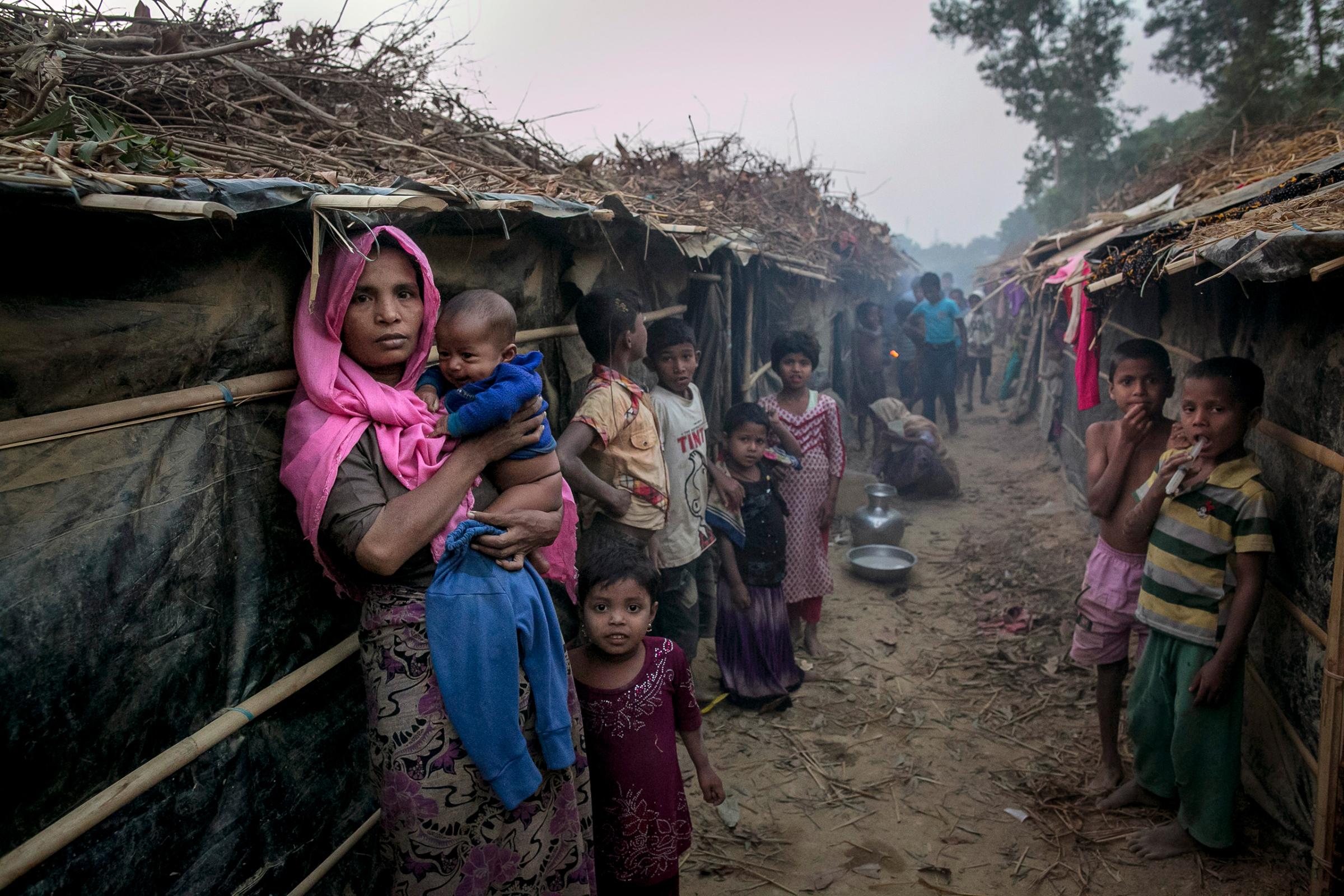
“Aung San Suu Kyi and the NLD came to power with virtually the entire country and world on its side,” Mitchell, the former U.S. ambassador, tells TIME. “That goodwill still exists. But it was predicated on the assumption that the new government will represent a real break from the past.”
Those who know Suu Kyi describe her as a micromanager with a top-down leadership style, who has difficulty delegating power and makes high-level appointments favoring loyalty over all other qualities. She is reluctant to speak to the press. Advisers to the peace process say she’s not always a good listener. While her party was founded on the principle of nonviolence (90-year-old Tin Oo, a former military commander in chief who later helped found the NLD, tells TIME, “We believe that armed conflict achieves nothing”), her refusal to denounce recent military violence in Rakhine, Shan and Kachin states has left the nation’s most vulnerable people confused about where she stands. “Before the election, we supported the NLD. Now we don’t,” says Myint Kyaw, an administrator of a Rohingya village. “The main role of the government is to protect us, that’s all we want.”
Myanmar may be inundated by problems, but its evolution from a total military state to a halfway house on the road to democracy and modernity represents not insignificant progress. Perhaps the most positive change is that, unlike many developing countries, Myanmar’s leadership — at least the civilian side — does not see power as an end in itself. “Our success, where I am as a leader, is decided by how dispensable I can make myself,” Suu Kyi told Singapore broadcaster Channel News Asia in an interview last October. “And I hope that I’ll be able to make myself totally dispensable, that they will not need me to go on, neither my party, nor my country.”
More Must-Reads from TIME
- Cybersecurity Experts Are Sounding the Alarm on DOGE
- Meet the 2025 Women of the Year
- The Harsh Truth About Disability Inclusion
- Why Do More Young Adults Have Cancer?
- Colman Domingo Leads With Radical Love
- How to Get Better at Doing Things Alone
- Michelle Zauner Stares Down the Darkness
Contact us at letters@time.com